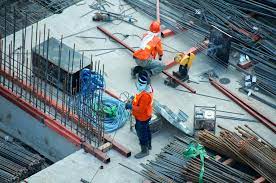All About Bamboo Flooring
Bamboo, with its natural beauty, tough and strong structure and constant regeneration ability, has become the new favorite of the building materials industry! As a herbaceous plant, compared to the slow growth cycle of trees, bamboo is obviously more green and environmentally friendly, a deep love for Mother Earth. Much like wood, bamboo flooring can be made solid or engineered to suit your needs, and comes in a wide variety of patterns and plank sizes.
Color Variability
Bamboo is available in a wide variety of colors, however, the common ones are divided into the following three main categories.
1. Pure natural bamboo. Bamboo that has not been dyed or charred has a golden yellow color.
2. stained bamboo. Bamboo can be hand-painted or brushed to any color of your choice.
3. Carbonized bamboo. During the production process, carbon is evenly incorporated into the coloring process of the entire bamboo plant, not just on the surface. The colors are rich, ranging from tan to light brown. However, the carbonization process gives the flooring greater flexibility, but also reduces its strength.
Eco-friendly bamboo kitchen flooring is available in a wide range of styles and finishes, from deep, dark tones to bright, shiny golds, to suit your individual needs, whether it’s tile or wood planks.
Mastery of construction
All bamboo floors are carefully engineered and constructed by cutting and pulverizing strands of grass into thin sheets, which are then re-pressed into the floor using heat and glue. This process creates the unique charm and appeal that makes bamboo flooring unique.
1. Horizontal structure. Bamboo strips are stacked in layers and pressure is applied to create a flat surface. In the texture effect, the visible “knuckles” of the bamboo joints preserve the original appearance of the herb. 2.
2. Vertical structure. The bamboo strips are turned sideways and arranged side by side before gluing. Although this type of flooring is slightly less durable, it offers a refreshingly clean and modern textural effect.
3. Braided or stranded construction. Crushed bamboo strands are compressed with resin to create a solid hardwood-like surface. This is one of the most durable types of flooring and adds a touch of exotic flavor to the home environment.
Easy maintenance
Regular sweeping or vacuuming will keep your bamboo floor clean and shiny, and the occasional wipe down with a damp mop or cloth will suffice for daily cleaning. There is no need for additional sealing, which saves you a lot of trouble.
Wide range of applications
Suitable for virtually any indoor space, although optimal results may not be achieved in areas where moisture tends to accumulate, such as bathrooms or basements.
Pet-Friendly
Hard surface resists abrasion from pet paws and is less likely to stain. Provide your pet with a soft mat or pet bed for an enhanced quality of life.
Strict requirements for laying conditions
The subfloor needs to be extremely smooth, as bamboo is inherently susceptible to moisture. For this reason, a waterproof underlayment is critical if the mat is placed on top of a concrete slab.
Bamboo flooring has won the favor of consumers because of its durability, beauty and environmental friendliness.
What is the environmental performance?
For the environmental performance of bamboo flooring, people have different views on this. On the one hand, bamboo, as a fast-growing plant, is available in large quantities and is therefore a valuable and rapidly renewable resource. On the other hand, the use of bamboo helps to alleviate the pressure on other wood species, especially those that are scarce and come from abroad.
However, it is worth noting that most bamboo flooring is produced overseas, where the manufacturing process is relatively poorly regulated. This means that some brands may contain adhesives that emit harmful volatile organic compounds and substances such as formaldehyde. In addition, as most bamboo flooring is sourced overseas, the carbon footprint of the transportation process will inevitably have an impact on the environmental performance of the material.






